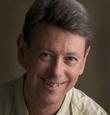The word, sacred, has two kinds of meanings. First, it can refer to something related to religion or spirituality. Second, more broadly, it can refer to something that one cherishes, that is precious, to which one is respectfully, even reverently, dedicated, such as honesty with one's life partner, old growth redwoods, human rights, the light in a child's eyes, or longings for truth and justice and peace.
Both senses of the word touch me deeply. But many people relate to just one meaning, which is fine. You can apply what I'm saying here to either or both meanings.
I think each one of us - whether theist, agnostic, or atheist - needs access to whatever it is, in one's heart of hearts, that feels most precious and most worthy of protection. Imagine a life in which nothing was sacred to you - or to anyone else. To me, such a life would be barren and gray.
Sure, some terrible actions have been taken in the name of avowedly sacred things. But terrible actions have been taken for all kinds of other reasons as well; the notion of the sacred is not a uniquely awful source of bad behavior. And just because some people act badly in the name of something does not alter whatever is good in that something.
Opening to what's sacred to you contains an implicit stand that there really are things that stand apart in their significance to you. What may be most sacred is the possibility of the sacred!
If you're like me, you don't stay continually aware of what's most dear to you. But when you come back to it - maybe there is a reminder, perhaps at the birth of a child, or at a wedding or a funeral, or walking deep in the woods - there's a sense of coming home, of "yes," of knowing that this really matters and deserves my honoring and protection and care.
The Practice.
For an overview, notice how you feel about the idea of "sacred." Are there mixed feelings about it? How has the rise of religious fundamentalism worldwide over the past several decades - or the culture wars in general - affected your attitudes toward "sacred"? In your own life, have you been told that certain things were sacred that you no longer believe in? Do you feel you have the right to name what is sacred to you even if it is not sacred to others? Taking a little time to sort this out for yourself, maybe also by talking with others, can clear the decks so that you can know what's sacred for you.
In this clearing, there are many ways to identify what is sacred for someone. Maybe you already know. You could also find a place or time that is particularly peaceful or meaningful - perhaps on the edge of the sea, or curled up with tea in a favorite chair, or in a church or temple - and softly raise questions in your mind like these: What's sacred? What inspires awe? A feeling of protection? Reverence? A sense of something holy?
Different answers come to different people. And they may be wordless. For many, what's most sacred is transcendent, numinous, and beyond language.
Whatever it is that comes to you, explore what it's like to open to it, to receive it, to give over to it. Make it concrete: what would a conversation be like, or what would your day be like, if you did it with a sense of something that's sacred to you?
Without stress or pressure, see if there could be a deepening commitment to this something sacred. How do you feel about making sanctuary for it, in your attention and intentions, and in how you spend your time and other resources?
Then, when you do sustain a sense of the sacred, or involve it in some way in some action, sense the results and let them sink in to you.
However it shows up for you, the sacred can be a treasure, a warmth, a mystery, a light, and a profound refuge.
Rick Hanson, Ph.D., is a psychologist, Senior Fellow of the Greater Good Science Center at UC Berkeley, and New York Times best-selling author. His books are available in 26 languages and include Hardwiring Happiness, Buddha’s Brain, Just One Thing, and Mother Nurture. He edits the Wise Brain Bulletin and has numerous audio programs. A summa cum laude graduate of UCLA and founder of the Wellspring Institute for Neuroscience and Contemplative Wisdom, he’s been an invited speaker at NASA, Oxford, Stanford, Harvard, and other major universities, and taught in meditation centers worldwide. His work has been featured on the BBC, CBS, and NPR, and he offers the free Just One Thing newsletter with over 120,000 subscribers, plus the online Foundations of Well-Being program in positive neuroplasticity that anyone with financial need can do for free.

Post new comment
Please Register or Login to post new comment.